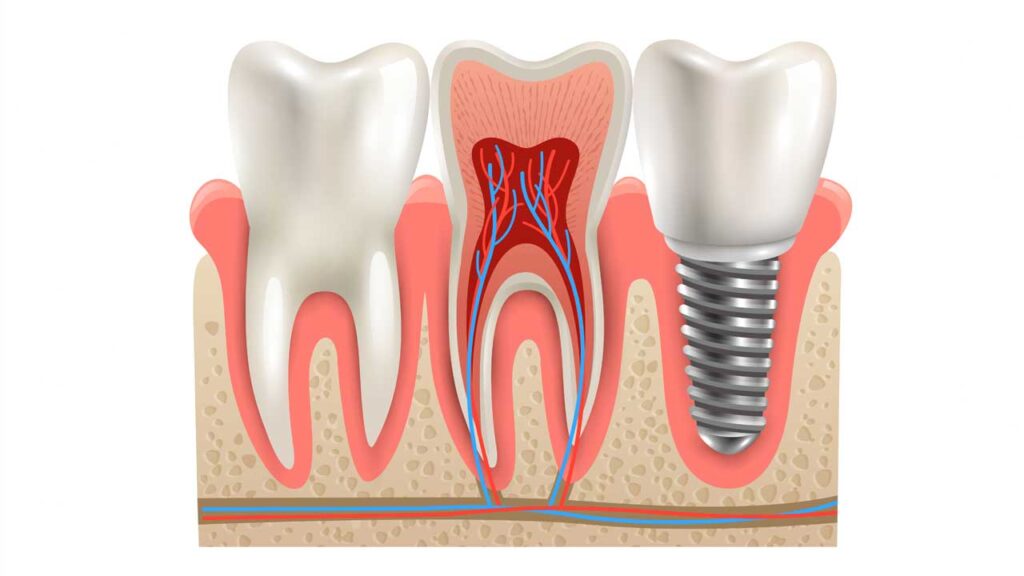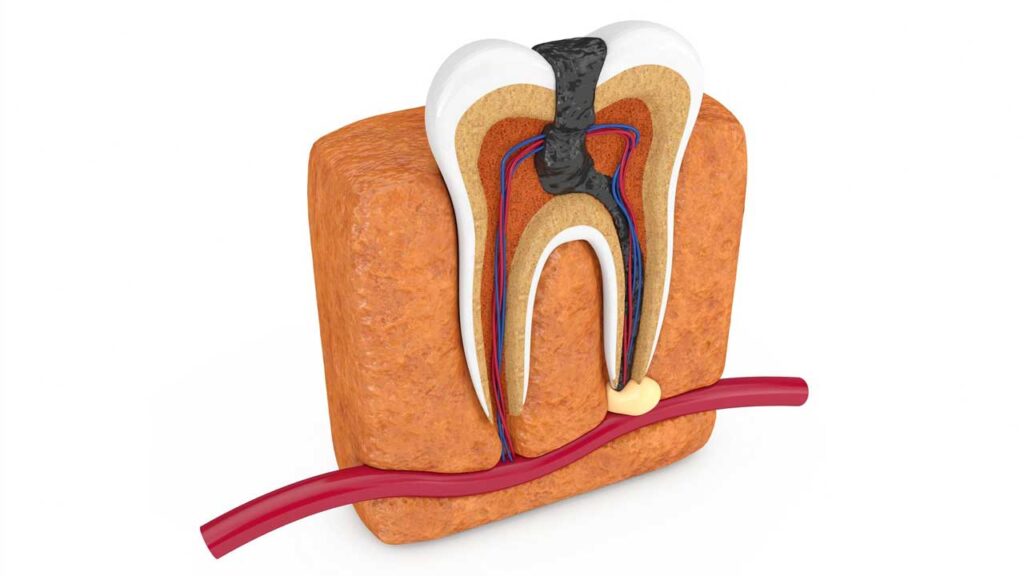Root canals and endodontic treatment are procedures that are used to save teeth that have been damaged or infected. The pulp, which is the soft tissue inside the tooth that contains nerves and blood vessels, can become damaged or infected due to a variety of factors, including decay, trauma, or injury. When this happens, the tooth can become extremely painful and may need to be removed if left untreated.

Root canals and endodontic treatment are designed to remove the damaged or infected pulp and to seal the [tooth to prevent](https://dentalhealthtime.com/the-role-of-dental-hygiene-in-preventing-tooth-decay/ ) further infection. This can save the tooth and prevent the need for more extensive and costly [dental procedures](https://dentalhealthtime.com/the-different-types-of-dental-procedures-explained/ ) in the future.
Understanding Root Canals:
To understand root canals and endodontic treatment, it’s important to understand the anatomy of a tooth. Each tooth is made up of several layers, including the enamel, which is the hard, outer surface of the tooth, the dentin, which is the softer layer beneath the enamel, and the pulp, which is the soft tissue inside the tooth that contains nerves and blood vessels.
When the pulp becomes damaged or infected, it can cause a great deal of pain and discomfort. Common causes of pulp damage include decay, trauma, and injury. If left untreated, the infection can spread and can lead to the formation of an abscess, which is a pocket of pus that forms at the end of the tooth’s roots.
The root canal procedure is designed to remove the damaged or infected pulp and to seal the tooth to prevent further infection. During the procedure, the dentist will numb the area around the tooth and make a small opening in the top of the tooth. The pulp is then removed and the inside of the tooth is cleaned and sealed.
The Benefits of Endodontic Treatment:
Endodontic treatment, which is commonly referred to as a root canal, can save a damaged or infected [tooth and prevent the need for more extensive and costly dental](https://dentalhealthtime.com/the-role-of-dental-hygiene-in-preventing-tooth-discoloration/ ) procedures in the future. The procedure can provide [pain relief ](https://dentalhealthtime.com/wisdom-teeth-pain-relief-natural-home-remedies-to-try/ )and improve the function of the affected tooth.
Additionally, endodontic treatment can also help to reduce the risk of further infection and improve overall oral health. By removing the damaged or infected pulp and sealing the tooth, the procedure can prevent the spread of infection to other teeth and can help to maintain the health of the surrounding tissue.
healthcareDental health is an important aspect of overall health and well-being. Take control of your dental health with our top-quality dental health care products. Say goodbye to painful and inconvenient dental issues and hello to a brighter, healthier smile.
These products are designed with the latest technology and are made from premium materials, ensuring that you get the best results. Whether you’re looking for a solution for sensitive teeth, gum health, or just want to keep your smile sparkling, our dental health care products have got you covered.
Tired of hiding your smile due to yellowing, stained, or sensitive teeth?
ProDentim is here to help. This advanced formula whitens and strengthens your teeth, while also reducing sensitivity and promoting oral health. Say goodbye to expensive and painful dental treatments, and start enjoying a bright, confident smile with ProDentim.
Click Here to Try ProDentim now and see the results for yourself!
Struggling with tooth sensitivity, gum problems or bad breath?
Dentitox Pro is the solution you need. This natural, effective formula helps to clean and strengthen your teeth and gums, giving you a brighter, healthier smile. Dentitox Pro is made with the finest ingredients and is free from harmful chemicals, making it safe and gentle for everyday use. Say goodbye to pain and embarrassment, and start enjoying a confident, beautiful smile with Dentitox Pro.
Click Here to Order now and get 20% off your first purchase!
Click Here for Professional Teeth Whitening
Frequently Asked Questions (FAQ):
What is a root canal and why is it necessary?
A root canal is a procedure that is used to remove the damaged or infected pulp from inside a tooth and to seal the tooth to prevent further infection. It is necessary to save a damaged or infected tooth and prevent the need for more extensive and costly dental procedures in the future.
What are the signs that I may need a root canal?
The signs that you may need a root canal include severe toothache, sensitivity to hot or cold temperatures, swelling or tenderness in the gums, and darkening of the tooth.
How long does a root canal take and what should I expect during the procedure?
The length of a root canal procedure can vary depending on the severity of the damage or infection, but it usually takes between one and two hours. During the procedure, you can expect to be numbed and the area around the tooth will be made numb. The dentist will then make a small opening in the top of the tooth and remove the damaged or infected pulp. The inside of the tooth will then be cleaned and sealed.
Are there any risks or side effects associated with endodontic treatment?
As with any medical procedure, there are risks and side effects associated with endodontic treatment. Some possible risks include pain or discomfort during or after the procedure, infection, and injury to the surrounding tissue. However, these risks are generally considered to be low and can be minimized with proper care and follow-up.
What are the alternatives to root canal treatment?
The main alternative to root canal treatment is tooth extraction. However, this is generally considered to be a last resort, as it can lead to further complications and the need for additional dental work, such as dental bridges or implants. Other options include dental fillings or crowns, but these may not be suitable for severe cases of infection or damage.
In conclusion, understanding root canals and endodontic treatment is crucial for maintaining good oral health. The procedure can save a damaged or infected tooth, prevent the need for more extensive and costly dental procedures, and improve overall oral health.
It is important to discuss the option of endodontic treatment with a dentist before making a decision and to have regular dental checkups to catch any issues early on. If you have any further questions or concerns, it is always best to consult with a dental professional.

